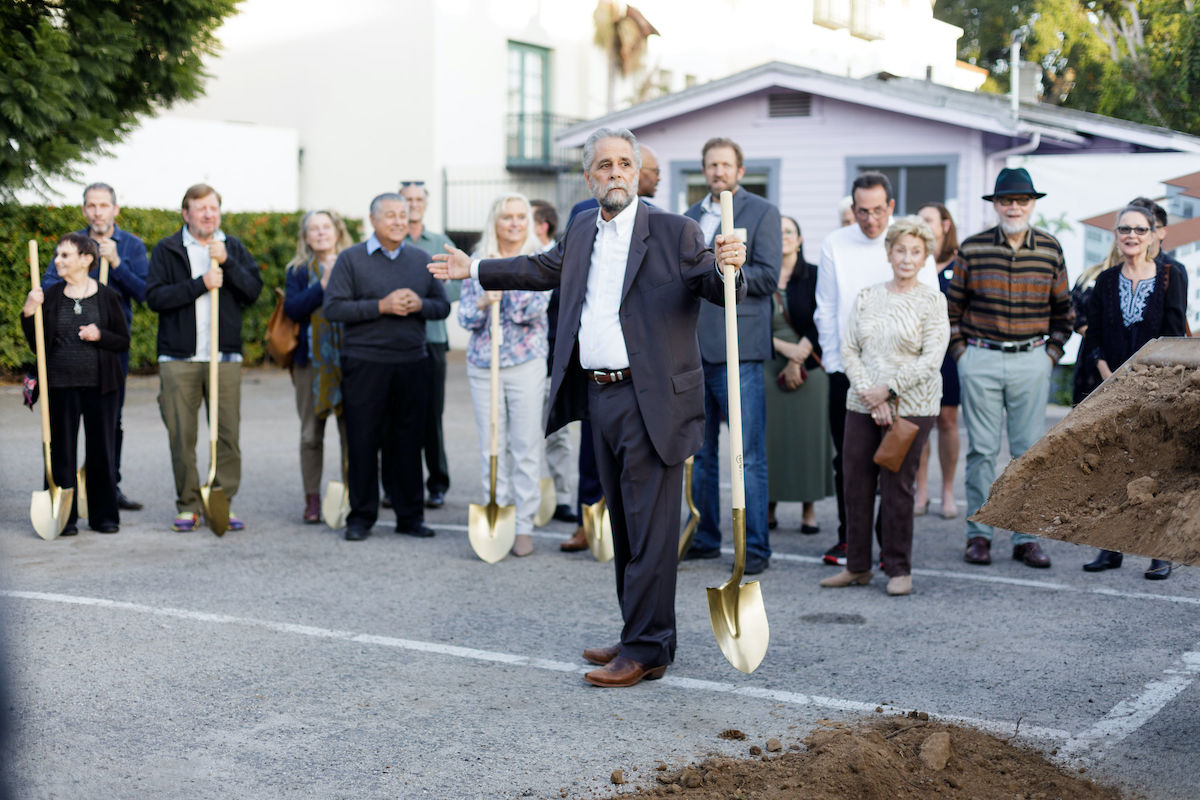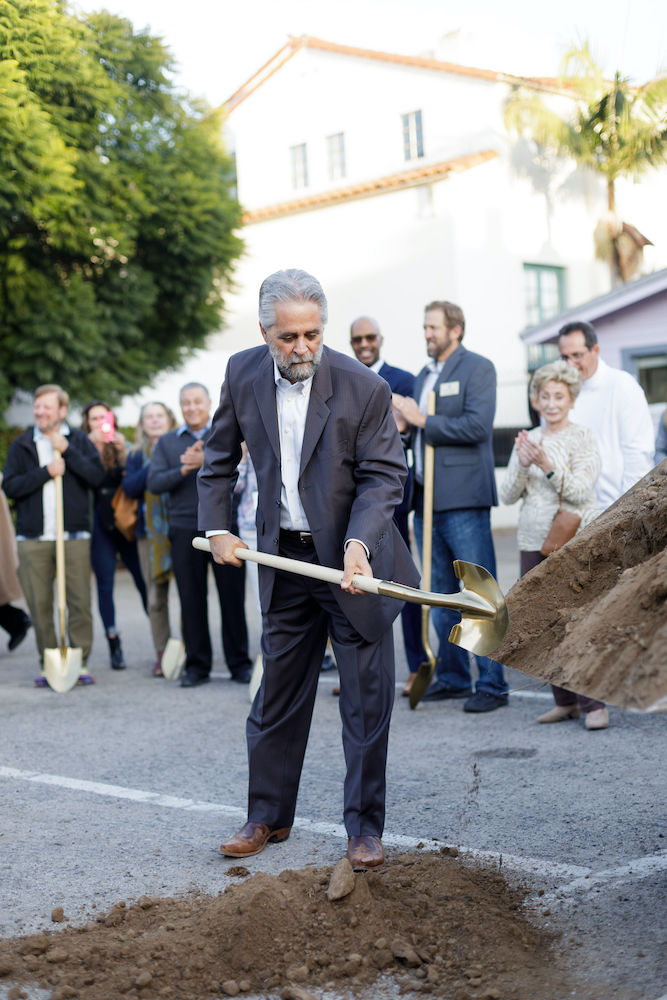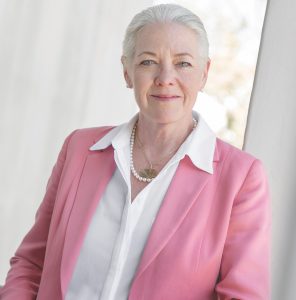Sanctuary Centers

Last month’s groundbreaking ceremony marked Sanctuary Centers’ initiation of its forthcoming new building. To witness the launch of this transformative community benefit project was, of course, a thrilling moment. The project, which will provide 34 units of new housing along with co-located medical, dental and behavioral health clinics, represents a milestone moment in the nonprofit’s 50-year history of addressing the holistic needs of individuals experiencing mental illness.
The 34 housing units are more than simply structures for clients to live in – they represent the promise of a secure, supportive home and community space for individuals that fall between requiring in-patient care and being able to sustain fully independent living – where the latter may yet need an extra level of support. The new building will be a shining example of the Behavioral Health Home Model, one that provides head-to-toe care for people with mental health and substance abuse issues.

So it’s no surprise that Santa Barbara County Supervisor Laura Capps and State Assemblymember Gregg Hart were on hand to deliver inspiring speeches and share insights on the project’s significance. “Sanctuary Centers’ dedication to addressing mental health needs in our community aligns with our shared vision for a compassionate and inclusive city,” Capps said during the ceremony.
The event represented the culmination of “20 years of discussion and 10 years in creation” for Barry Schoer, Sanctuary Centers’ President and CEO of more than four decades, who resorted to undertaking the construction project when his efforts to find suitable rental facilities proved fruitless.
“The crowning glory of this project is the fourth and fifth floor, with the housing for the supported independent living,” he said. “They’re these incredible individuals who work so hard and get better and get stable, but just are never going to have the ability to live fully independently. As a result, they either wind up staying in our treatment programs too long, or they try independent living and just can’t do it, which often means getting hospitalized again. This is a middle road for them. If it wasn’t for organizations like us providing housing for these individuals, nobody in this community would do it.”
Schoer said the building is largely modeled after senior living communities where residents have their own apartment, but with the addition of services, support and staff.
“The primary purpose is to help them engage in independent living activities and socialization activities in a safe and secure environment while making sure they get assistance in monitoring their medication or maintaining their sobriety. It’s community living, community dining, socialization activities every day, outings every day, bigger outings on the weekends, a staff person there 24/7; but not therapy, not treatment. They did that, they graduated. Let them have the security of a safe environment where they are loved and allowed to enjoy their life.”
The ground floor of the new facility will feature Sanctuary Centers’ upgraded version of the Integrated Health Center that was previously on the site.
“People who come there can get their psychiatric care, their substance abuse care, their medical care, their dental care, everything in one place,” Schoer said. “It’s a robust clinic that’ll be open 18 hours a day, seven days a week, which will alleviate waiting time and overcrowding at Cottage Hospital Emergency Room by helping folks in the evenings and weekends who really don’t have the kind of serious medical conditions that need to be in the ER. Those folks will be better served in our clinic.”
For Lola Ban West, Director of Marketing and Development at Sanctuary Centers, the new project represents a continuation of the nonprofit’s commitment to evolving alongside the needs of our community.
“The building addresses in some small part two big systemic issues of mental illness and homelessness,” she said, “while also calling attention to the stigma that exists around unhoused populations and populations that are experiencing mental illness – especially those folks who are experiencing both homelessness and mental illness. The stigma is real, the stigma exists, and we would do so much more if we could, but we’re limited by what our community, what our legislators, and what our landlords are willing to get behind and support.”
Which is partly why despite the groundbreaking ceremony, Sanctuary Centers still needs to raise an additional $10 million to complete the project and fund ongoing services.
“We’re at critical mass,” Schoer said. “We raised enough money to break ground and to get our permits and get started with construction, but over the next two years, we’ve got to find additional money to finish the building. We’ve got to raise the funds to pay off the debt, and more money to provide long-term services and support, because we live in a county that completely underfunds services for the mentally ill.”
Even with the expanded support from the VA for housing services, Sanctuary Centers still has to step in to fill the gaps, Schoer said.
“There are veterans who go back to my generation, who served in Vietnam, who are living on the street with mental illness, with PTSD, with substance abuse. Because even with their VA benefits, there’s not a lot of options in Santa Barbara. So what we’ve done for years is scholarship them for services, and we’ll foot the entire bill for their housing in the new building.”
But in the meantime, the vibe around the Sanctuary Centers office is one of anticipation and eagerness about soon being able to deliver on the promise of these services and see the dream come to fruition after 10 years, Watts said.
“Soon, there will be a hole in the ground and we’ll see beams being erected and there will be a building there that will do so much. Hopefully it’s just the first step in the direction of being able to model this exact type of center and service around the state, and our nation.”
Schoer is already looking down the road.
“In my head, I’m moving on because we need to find partners and other people to replicate it and have other organizations in the community step up and say, let’s do it together. Let’s keep growing this because the new building is really just a drop in the bucket.”
Sanctuary Centers
https://sanctuarycenters.org
(805) 569-2785
Sanctuary Centers
Donate now!www.sanctuarycenters.org
(805) 569-2785
President and CEO: Barry Schoer
Mission
It is our mission at Sanctuary Centers to provide our clients with powerful, comprehensive, transformative mental health care. Our compassionate and experienced clinical team provides each and every client with a diverse array of proven treatment services designed to ensure success. At Sanctuary Centers, mental illness is not a roadblock that makes progress impossible. We are here to provide the stepping stones needed to overcome them.
Begin to Build a Relationship
We know you care about where your money goes and how it is used. Connect with this organization’s leadership in order to begin to build this important relationship. Your email will be sent directly to this organization’s director of development and/or Executive Director.
Expanding Services to Those in Need
Sanctuary Centers is seeking to raise $18 million to build a five-story facility that will significantly increase its ability to serve those living with mental illness and substance use disorders. Located in the heart of downtown Santa Barbara, adjacent to the Sanctuary Centers’ Outpatient Mental Health and Housing campus, the new facility will nearly double its number of affordable housing apartments and significantly increase its number of individual and group therapy rooms. Until now, the fundraising drive has relied on major gifts from friends of Sanctuary Centers, including two special benefit concerts hosted by musician Jackson Browne. Today, the organization is embarking on a more ambitious fundraising campaign to ensure the long-term sustainability of its programs and services.
Key Supporters
Martie Levy
Mark Levine
Dennis Clark, CPA
Ellen Broidy, Ph.D
Karin Napel
Nicole De La Loza Rivera
Mike Stein
Marsha Marcoe
Christina M. Behrman
Michael Young, Ph.D.
James Joyce, III
Olivia Loewy
Meagan Harmon
Marianell Schaaf
Mike & Dale Nissenson
Deborah Schwartz
Art Jarvis
& Claire-Lise Benaud-Jarvis
Richard Donner
Phyllis Gilmore
Denise Jarvis


